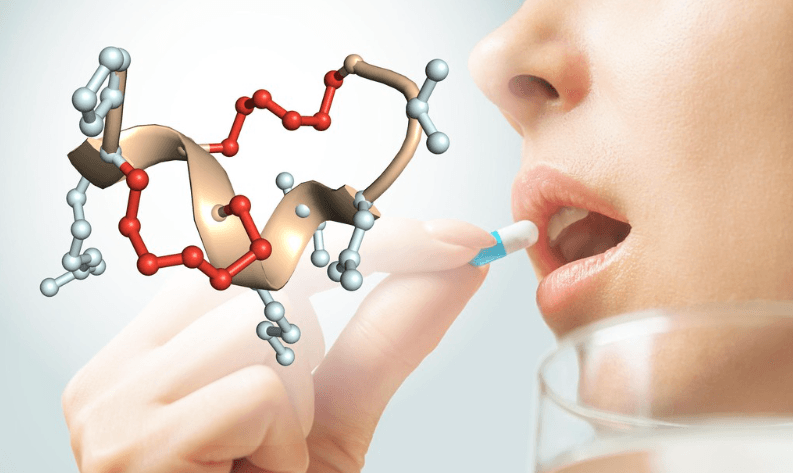
The Power of Peptides in Medicine and Wellness
Image Source: Unsplash
Peptides are small chains of amino acids, the building blocks of proteins. While they have been known for their role in protein synthesis, recent developments have unlocked their potential as therapeutic agents in medicine and wellness. With the ability to target specific proteins and modulate biological processes, peptides are poised to revolutionize the future of medicine.
What are Peptides?
Peptides are short chains of amino acids, typically comprising fewer than 50 amino acids. They are synthesized through the process of ribosomal translation, where messenger RNA (mRNA) directs the assembly of amino acids into a polypeptide chain.
Peptides are involved in a wide range of physiological processes, including growth and development, immune function, and metabolic regulation. They act as signaling molecules, transmitting information between cells and modulating cellular responses.
Peptides as Therapeutic Agents
Peptides offer several advantages over traditional small-molecule drugs, including high selectivity and specificity for their targets, low toxicity, and the ability to penetrate cell membranes. They can also be designed to have a longer half-life in the body, allowing for less frequent dosing.
One of the most promising applications for peptides is in the treatment of cancer. Peptides can be designed to target specific proteins that are overexpressed in cancer cells, inhibiting their activity and promoting cell death. Peptide-based drugs have already been approved for the treatment of certain types of cancer, including multiple myeloma and acute lymphoblastic leukemia.
Peptides also have potential in the treatment of other diseases, including autoimmune disorders, infectious diseases, and cardiovascular disease. They can be used to modulate immune responses, inhibit viral replication, and regulate blood pressure and heart rate.
Peptides in Anti-Aging
Peptides also have potential in the field of anti-aging. As we age, our bodies produce fewer peptides, leading to a decline in the production of collagen and elastin, two proteins that are essential for maintaining youthful skin. Peptides can be used to stimulate the production of these proteins, promoting skin elasticity and reducing the appearance of wrinkles.
Peptides have also been shown to have anti-inflammatory properties, which can help reduce the inflammation associated with aging and age-related diseases. They can also stimulate the production of growth hormone, which declines with age and is associated with a range of age-related conditions.
Peptides for Building Muscle and Losing Body Fat
Peptides are also popular in the fitness industry, where they are used to build muscle and lose body fat. One of the most well-known peptides in this context is human growth hormone (HGH), which is naturally produced by the body and stimulates the growth and repair of muscle tissue.
Peptides can also be used to stimulate the production of insulin-like growth factor 1 (IGF-1), which is involved in muscle growth and repair. They can also increase the production of testosterone, which is essential for building muscle and burning fat.
The Future of Peptide-Based Medicine
As our understanding of the role of peptides in health and disease continues to grow, so too does our ability to design and develop peptide-based therapeutics. Advances in computational methods and deep learning algorithms have allowed for the rapid screening and optimization of peptide candidates, reducing the time and cost of drug development.
The potential applications of peptides in medicine and wellness are vast, with the ability to target and modulate specific proteins and biological processes. As more research is conducted and more peptide-based drugs are developed, we can expect to see even more breakthroughs in the field of medicine.
Conclusion
Peptides offer a promising avenue for the development of novel therapeutics in medicine and wellness. With their ability to target specific proteins and modulate biological processes, they have the potential to revolutionize the treatment of diseases and the promotion of health and wellness.
As our understanding of the role of peptides in health and disease continues to grow, so too does our ability to design and develop peptide-based drugs. With advances in computational methods and deep learning algorithms, we can expect to see even more breakthroughs in the field of medicine in the coming years.
At our pharmacy, we are committed to providing our customers with the highest quality peptide-based medications, prescribed by licensed physicians and approved by our team of pharmacists. We believe that peptides offer a safe and effective alternative to traditional drugs, with the potential to improve the lives of millions of people around the world.
Sources:
- Lau, J.L., and Dunn M.K. (2018) Therapeutic peptides: Historical perspectives, current development trends, and future directions. Bioorg Med Chem.
- Mabonga, L., and Kappo, A.P. (2020) Peptidomimetics: A Synthetic Tool for Inhibiting Protein-Protein Interactions in Cancer. Int J Pept Res Ther.
- Wu, K. J., et al. (2019). Mimicking Strategy for Protein-Protein Interaction Inhibitor Discovery by Virtual Screening. Molecules.
- Farhadi, T., and Hashemian, S.M. (2018). Computer-aided design of amino acid-based therapeutics: a review. Drug design, development and therapy.
- Shin, W.H., Christoffer, C.W., and Kihara, D. (2017). In silico structure-based approaches to discover protein-protein interaction-targeting drugs. Methods.
- Lu, H., et al. Recent advances in the development of protein-protein interactions modulators: mechanisms and clinical trials. Sig Transduct Target Ther 5, 213 (2020).
- Fosgerau K, Hoffmann T. (2015) Peptide therapeutics: current status and future directions. Drug Discov Today.



